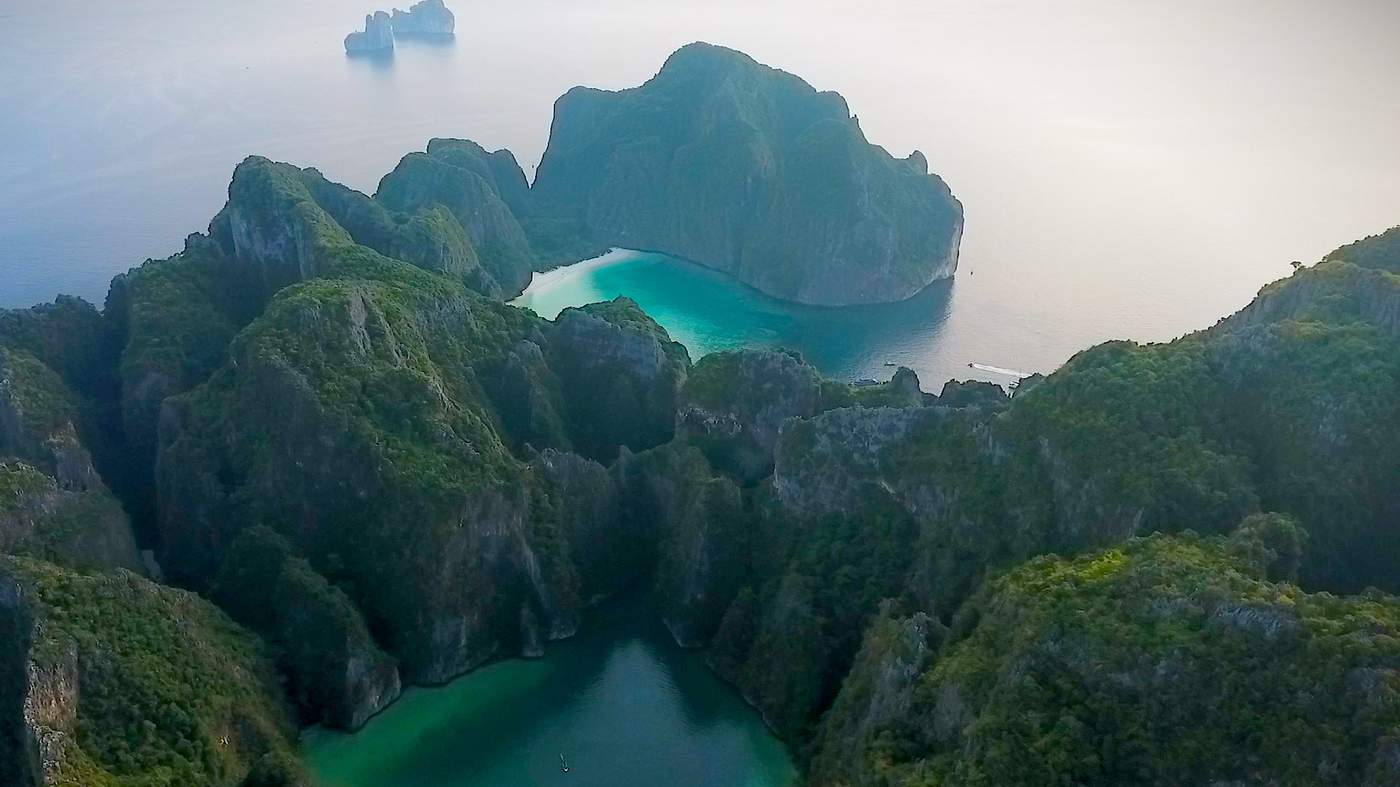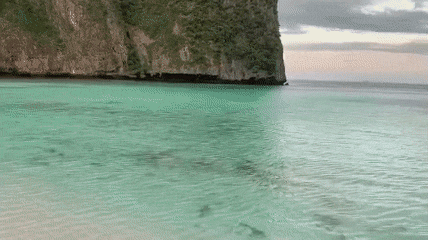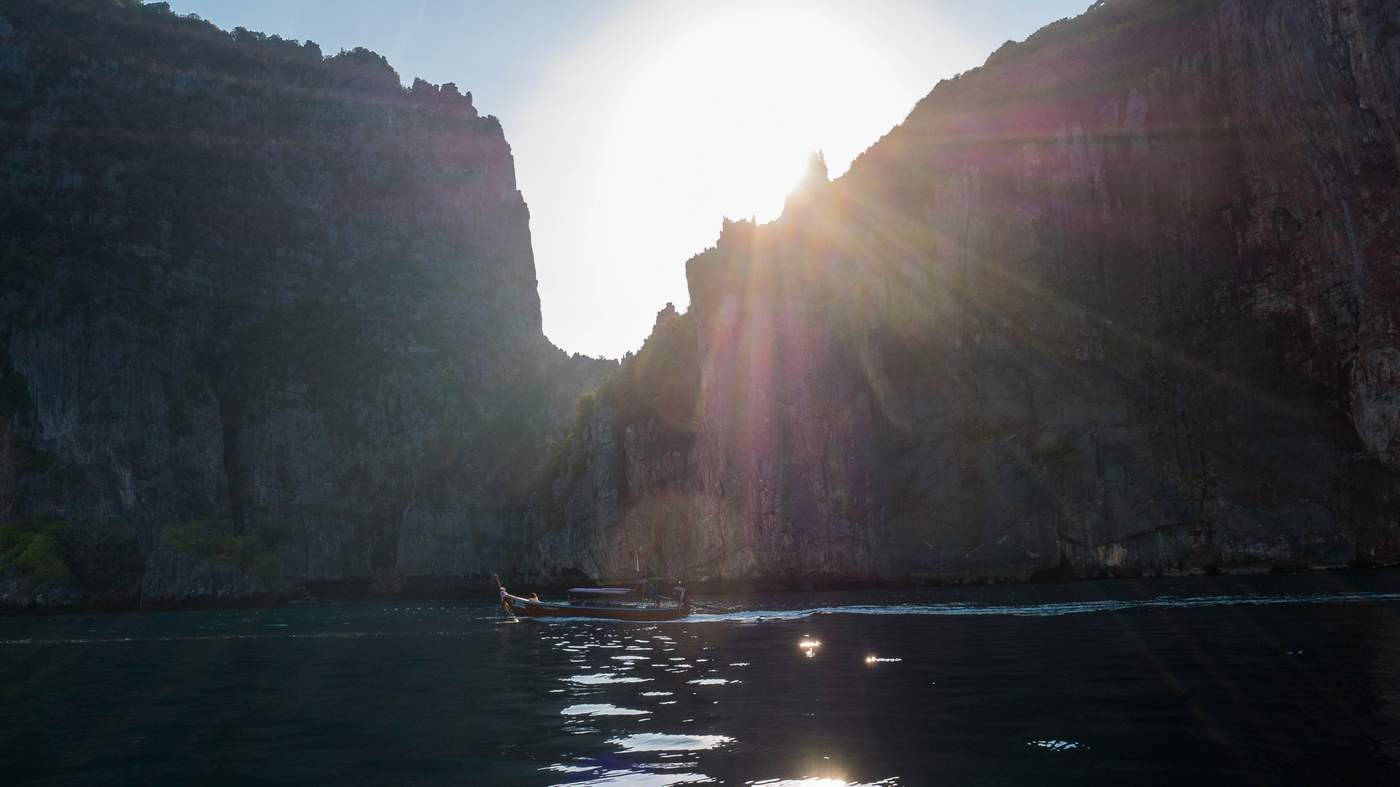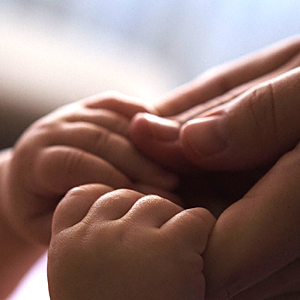This is the story of one perfect beach.
There are hundreds of pristine white-sand beaches along the coast of Thailand, but one tiny bay, almost hidden by limestone cliffs, has obsessed the world.
For years, people would come in staggering numbers hoping to step into "paradise". One day last year, it was shut down.
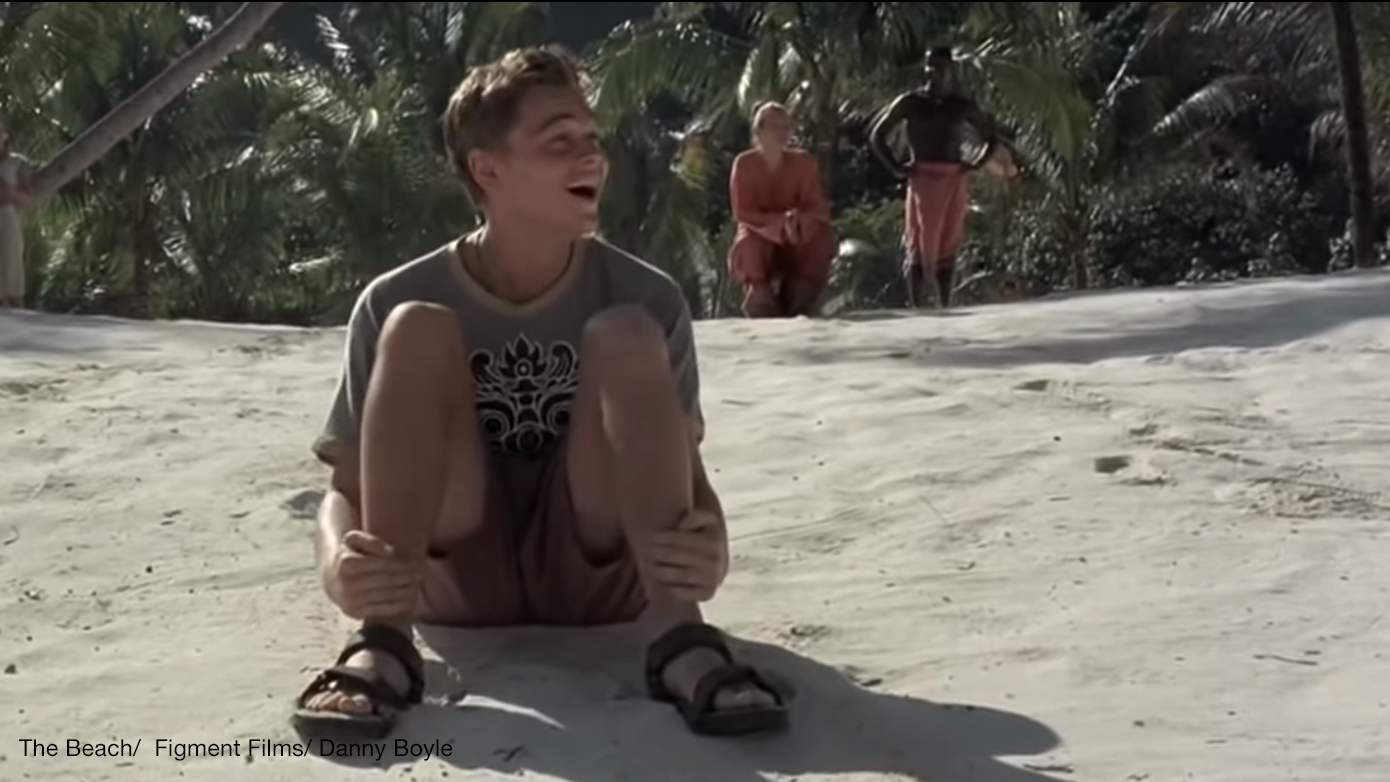
In the 1990s a film crew decided that Maya Bay, on the island of Phi Phi Leh in southern Thailand, was the kind of heaven-on-earth idyll where a group of people who wanted to rebuild society from scratch might settle.
The Beach, starring Leonardo DiCaprio, was released in the year 2000. Based on the book by Alex Garland, it tells the story of a backpacker's search for a legendary beach untouched by tourism. Obviously things turn sour in paradise.
Since then this tiny, but now iconic, strip of sand has topped bucket lists of people around the world consumed by wanderlust.
Already high, the volume of visitors to the area saw an astonishing spike in 2016 when Chinese tourists started coming in large numbers.
Boat after boat would pull up to the powdery white sand depositing tourists.
Many came to secure that perfect selfie. They expected a serene isolated spot, but what they found was noisy and crowded, bursting at the seams.
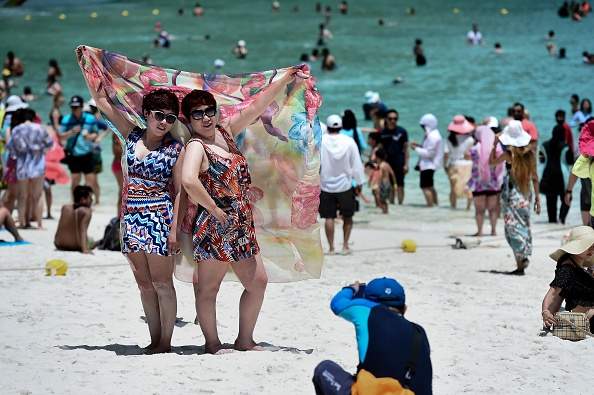
Tourists having their photo taken by a guide on Maya Bay before its closure
In peak tourist season this 300m-long shore was getting 3,500 visitors a day. More parade than paradise.
Boats lined almost the entire stretch, with more behind waiting to drop anchor. At times there was so little space on the sand that people would just stand around without being able to settle down and contemplate the view. Over time TripAdvisor reviews become increasingly exasperated by the crowds, with Maya Bay condemned as "filthy" and "disgusting".
Now when you go to Maya Bay there is still a steady stream of boats, but they can only wait 300 metres away and look longingly at the paradise island. You can't stop them from taking selfies, though, even from this distance.
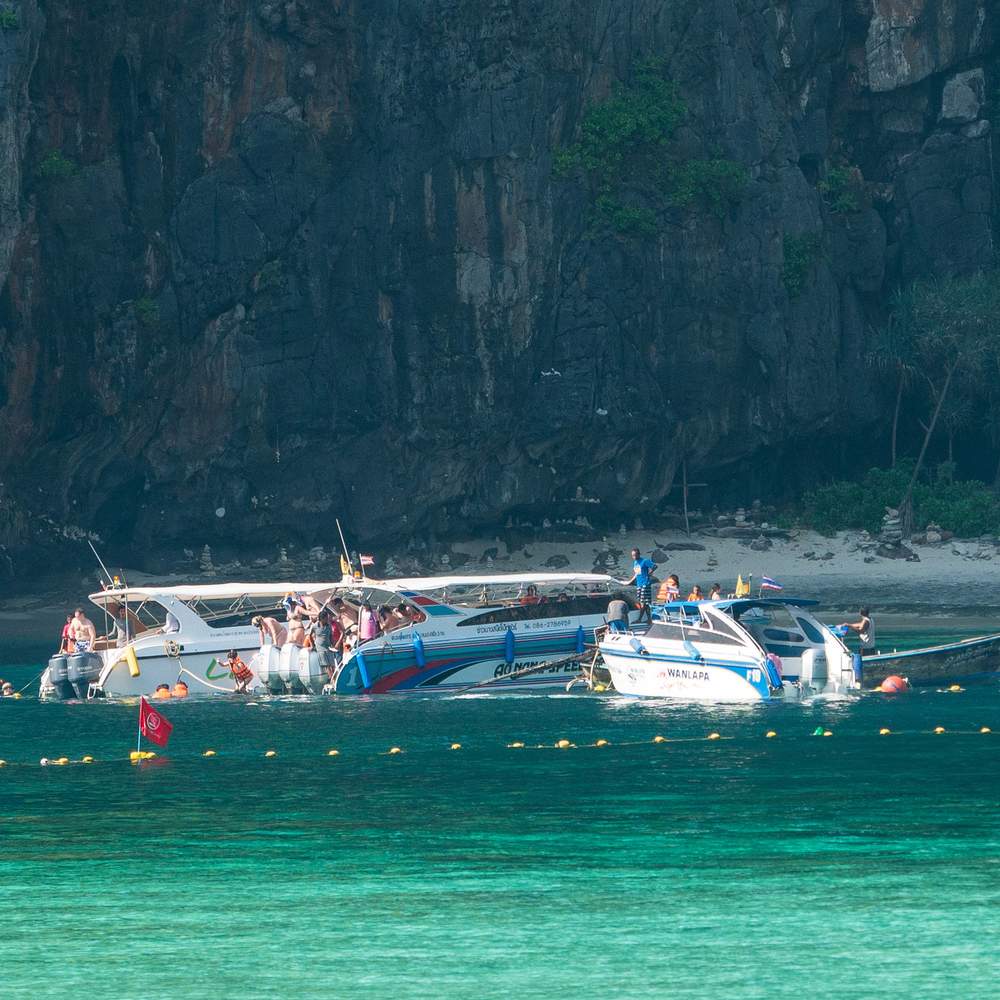
Tourist boats can only go as far as the demarcation line
The BBC team was given permission to visit the beach, and as our speedboat crosses the row of buoys with flags saying "do not enter", we get some grumbling from the tourists lined up at the "border". Some of them told us they had come to Thailand just to visit Maya Bay and did not realise it was closed.
After more than six months of conservation efforts coupled with a ban on all human activity, there are actually some positive signs. A diver with the ministry showed us how new coral was starting to grow – although it will be decades before it reaches maturity.
